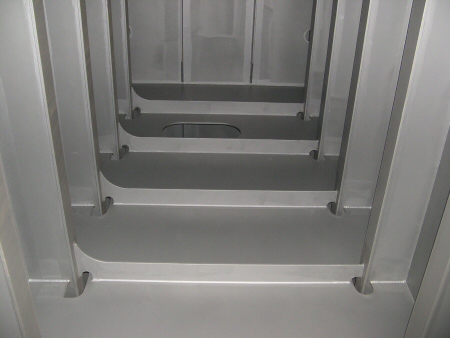De Nora has announced that it will supply Overseas Shipholding Group (OSG) with BALPURE® ballast water treatment systems (BWTS). OSG will retrofit the proprietary slipstream electrochlorination BWTS on four 69,000 DWT chemical and oil product tankers within the first half of 2017.
De Nora will supply its BALPURE® BP3000-C system, which can treat up to 3,000 m3/h of ballast water, for installation on the Overseas Goldmar, Overseas Silvermar, Overseas Rubymar and Overseas Rosemar. This is OSG’s second planned installation of the BALPURE® system, having entered into a contract with De Nora for the supply of two 50,000 DWT tankers, the Overseas Milos and Overseas Athens, earlier this year. Collectively, the orders represent the supply of BALPURE® BWTS to over 10% of OSG’s owned and operated fleet.
Lawrence Quinn, CEO, De Nora Water Technologies commented:
“This order on behalf of OSG marks our first confirmed order following ratification of the IMO’s Ballast Water Management Convention last month, and the start of what we expect to be a swift ramp-up in the retrofit market for BWTS. An existing customer that operates a majority US Flagged fleet trading under the Jones Act, this deal exemplifies the partnerships we have built and the industry confidence in our offering.
“De Nora is poised and ready to help our customers meet compliance effectively and for the long-term. The BALPURE® system is IMO Type Approved with USCG AMS Acceptance and is currently progressing through both land-based and shipboard testing for compliance with US Coast Guard (USCG) ballast water management legislation. Moreover, it has been rigorously tested in commercial use and we are extremely confident that the BALPURE® system will meet the world’s most stringent ballast water standards.”
De Nora has over 90 years’ experience in electrolytic seawater disinfection and over 12 years’ experience in ballast water treatment. It is the patent holder of the slipstream electrochlorination design concept used in BALPURE® systems. BALPURE® has also been identified by the US EPA Science Advisory Board (SAB) as one of only three systems able to meet a standard 10 times more stringent than the IMO D-2 standard. De Nora expects to complete testing and apply for USCG type approval in the first quarter of 2017.
Source: De Nora





























































